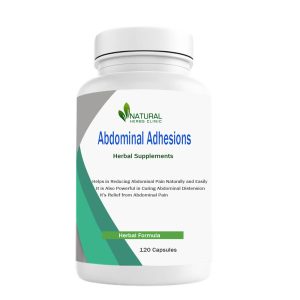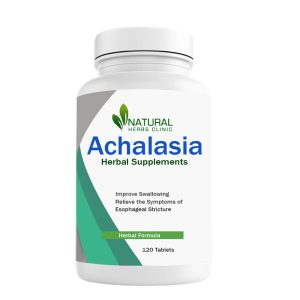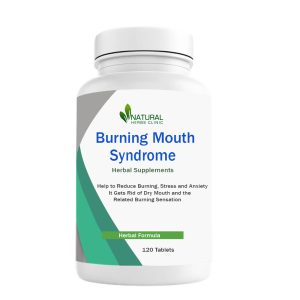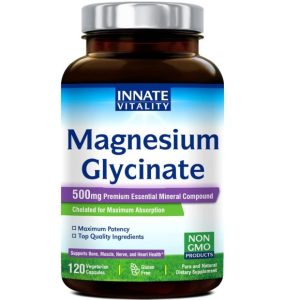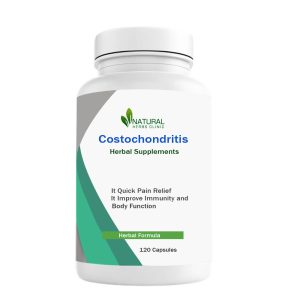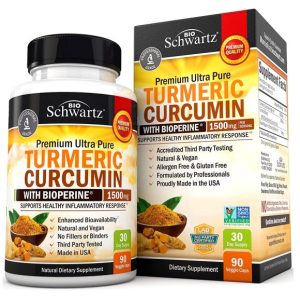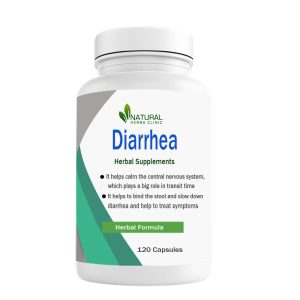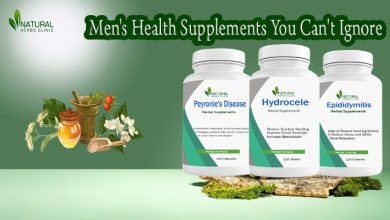10 Top Level Health Diseases Herbal Supplements and Remedies

By understanding the benefits of Health Diseases Herbal Supplements, we can make informed decisions about our own wellness and take proactive steps towards achieving better overall health.
Health Diseases
Health diseases are a major concern for people all over the world. With the increasing prevalence of lifestyle diseases, it is important to understand how to prevent and treat health ailments. Herbal supplements have become increasingly popular in recent years as an alternative to conventional treatments for various health diseases. By understanding the potential benefits of Health Diseases Herbal Supplements, we can make an informed decision on which ones are right for us. This article will provide an overview of different health diseases, and discuss how Health Diseases Herbal Supplements can help in managing them.
Health Diseases Herbal Supplements
Herbal Supplements for Health Diseases have become increasingly popular in recent years as an alternative treatment option for various health diseases. Studies have shown that herbal supplements can be beneficial in treating a wide range of ailments, including diabetes, heart disease, cancer, and more.
Health Diseases Herbal Supplements are known to be safe and effective when used correctly. They are also often less expensive than traditional medications and treatments. With the right combination of herbs, it is possible to effectively treat many health diseases without the use of dangerous drugs or expensive procedures.
Bronson Milk Thistle 1000mg Silymarin Marianum & Dandelion Root Liver Health Support 120 Capsules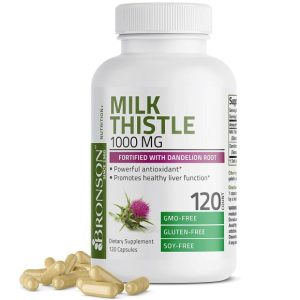
- Liver Health Support: The liver helps the body remove toxins and converts nutrients from our body into substances we can use.
- Antioxidant Support: Bronson Milk Thistle 1000mg is a powerful antioxidant that can help maintain healthy liver function.*
- High Potency: Each capsule contains 1,000mg of milk thistle to provide high-power liver support and contains an additional 50mg of dandelion root for additional benefits.*
- Trusted Since 1960: The pioneers of Bronson Vitamins were a group of pharmacists who witnessed the benefits of vitamins and mineral supplementation firsthand with their patients. Bronson Vitamins have been consistently mentioned by top medical professionals since our inception in 1960.
- Allergen Statement: This is natural product that contains flowers. Avoid this product if you are allergic to ragweed or daisy-like flowers.
Natural Remedies For Abdominal Adhesions
Abdominal adhesions are a common problem that can cause a lot of discomfort and pain. Fortunately, there are many natural remedies that can help reduce the symptoms associated with abdominal adhesions. In this article, we will discuss some of the most effective Natural Remedies for Abdominal Adhesions and how they can help reduce the severity of symptoms. We will also discuss how to use these remedies safely and effectively in order to get the best results.
Benefits Of Herbal Treatment
Benefits of Herbal Treatment for Abdominal Adhesions include are:
- It is also powerful in curing abdominal distension.
- It is helpful to calm excruciating stomach cramps and pain in intestinal muscles.
- It’s relief from abdominal pain.
- It soothes the muscles and nerves of your digestive tract.
- It also helps in lowering cholesterol levels in the body and treats asthma.
- It provides complete relief from the problem.
- It helps in reducing abdominal pain naturally and easily.
Divine Bounty Super B Complex Vitamins – All B Vitamins Including B12, B1, B2, B3, B5, B6, B7, B9, Folic Acid – Vitamin B Supplement – Support Healthy Energy Metabolism – 90 Vegetarian Capsules
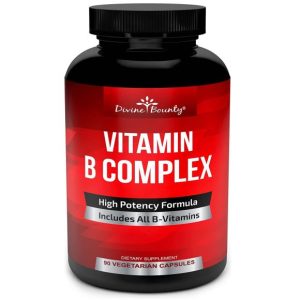
- Divine Bounty Super B Complex Vitamins – Our extra strength formula contains all the essential B Vitamins in just one capsule. If you’d rather take your B Vitamins (like B 12 & 6) together in one convenient capsule, look no further! Divine Bounty offers one of the most potent Vitamin B-Complex formulas available.
- Best Value For Money – Not only do we offer a high potency formula, each bottle contains 90 B Complex capsules, making it one of the best value vitamin B supplements available. The B-complex group are water-soluble vitamins, not easily stored in the body and thus need to be replenished frequently. Most comparable brands offer less capsules or a lower potency formula. With more capsules per bottle and superior potency per capsule, Divine Bounty is great value for money.
- Highest Quality Ingredients – Our formula is made up of only pure ingredients with no harmful additives. Simply the full B-Complex plus the combo of Inositol and Choline, two naturally occurring close cousins to the B Vitamin family. Our capsules are non GMO, soy free, gluten free and have no preservatives, stearates, silicone dioxide or artificial ingredients. A pure, clean formula.
- Daily B Complex Vitamins – Our bodies use B vitamins every day, and while diet is always the best way to get these essential vitamins, it’s not always possible to get enough of all 8 b vitamins from food alone. Use the Divine Bounty B Complex formula to supplement any deficiencies. Also sometimes called Super B, Stress B Complex, or B-100, it can also be taken as powder, tablets, pills, or soft gel caps.
- A Supplement You Can Take With Confidence – Divine Bounty is proudly made in the USA in an inspected facility. We stand behind our Vitamin B complex supplements and are proud to have the best formula on the market. If it doesn’t work for you, let us know. We care about your results.
Natural Remedies For Achalasia
Achalasia is a condition that affects the esophagus and can cause difficulty in swallowing. It is caused by a disruption in the nerves that control the muscles of the esophagus. Fortunately, there are many Natural Remedies for Achalasia that can help reduce symptoms and improve quality of life. In this article, we will explore some of these natural remedies and discuss how they can help treat this condition. We will also discuss potential risks associated with these treatments and how to choose the right remedy for your individual needs.
Benefits Of Herbal Treatment
Benefits of Herbal Treatment for Achalasia include are:
- It can do is help relieve your symptoms.
- It can also prevent long-term complications.
- It is very effective treatment for curing achalasia when heartburn is most troublesome.
- Its improve swallowing, eating, and quality of life.
- It helps stimulate certain energy meridians in the rib area to relieve the symptoms of esophageal stricture.
- It helps in relieving rigidity of esophageal muscles.
- It helps to manage heartburn.
Apple Cider Vinegar Gummies – 1000mg -Formulated to Support Weight Loss Efforts, Normal Energy Levels & Gut Health* – Supports Digestion, Detox & Cleansing* – ACV Gummies W/ VIT B12, Beetroot
- All The Benefits Of Apple Cider Vinegar Gummies* – Sized Gummy – Not a fan of drinking sour liquids or swallowing large capsules? Our Acv gummies taste good & go down easy. Each serving has 1000mg of ACV to help with digestive health, and support digestion & weight loss efforts.*
- Helps Maintain Healthy Weight* – Taking these apple cider gummies can help support your weight management efforts!*
- Each serving (2 gummies) is made with 1000mg of apple cider vinegar, which supports your overall health*.
- Energy Support* – Formulated with Vitamin B-12 to support your normal energy levels.* A great addition to your routine, these apple cider gummies will support your productivity & overall health.*
- These statements have not been evaluated by the Food and Drug Administration. This product is not intended to diagnose, treat, cure or prevent any disease.
Natural Remedies For Burning Mouth Syndrome
Burning Mouth Syndrome (BMS) is a painful condition that can cause burning sensations in the mouth, tongue, lips, and throat. It can be caused by a variety of factors including hormonal imbalances, vitamin deficiencies, dry mouth, and oral infections. Fortunately there are natural remedies that can help alleviate the symptoms of BMS. These remedies include dietary changes such as increasing your intake of vitamin B12 and omega-3 fatty acids; avoiding spicy foods; drinking herbal teas; using essential oils; and practicing relaxation techniques such as yoga or meditation. In this article we will discuss the various Natural Remedies for Burning Mouth Syndrome that you can try to help ease your discomfort.
Benefits Of Herbal Treatment
Benefits of Herbal Treatment for Burning Mouth Syndrome include are:
- It’s reducing the burning.
- It may help reduce stress and anxiety.
- It helps rehydrate as well as soothe sunburns and minor accidental burns.
- It helps numb the nerves briefly to provide relief.
- It helps hydrate the tissue.
- It gets rid of dry mouth and the related burning sensation.
- It eliminates the symptoms completely with regular take.
- It can also irritate your oral cavity and lead to canker sores and bad breath.
Innate Vitality Magnesium Glycinate 500mg per Caps, 120 Veggie Caps, Chelated for Maximum Absorption, Non-GMO, NO Gluten Dairy & Soy, Supports Muscle, Joint, and Heart Health
- [100% Natural, Safe, Vegetarian-Friendly Ingredients:] All Innate Vitality Magnesium Glycinate products are soy-free, gluten-free, dairy-free, Non-GMO & vegetarian, with no corn, no eggs, no wheat, no tree nuts, no peanuts, no fish/shellfish, no cholesterol, no artificial colors, flavors, binders or fillers. Our ingredients are also Kosher and Halal certified.
- [The Most Bioavailable Form of Magnesium*] Our vegetarian formula contains 500mg Highest potency of magnesium glycinate (also known as magnesium bisglycinate), which is the easiest form of magnesium for the body to absorb.* The elemental form of magnesium is chelated to optimize bioavailability.*
- [Support Heart & Muscle Health*] Magnesium is an essential mineral used by every organ in your body.* It also plays a key role in regulating the body’s normal stress-response system and promote cardiovascular & muscle health.*
- [Proudly Made in the USA] Our Elemental Magnesium Glycinate is made with the highest grade ingredients in our GMP certified facility right here in the USA. And is always third-party tested for purity and potency. By using the latest US technologies, our products offer highest potency and freshness of the whole foods nutrition the best way nature intended.
- [100% Satisfaction Guaranteed or Your Money Back] When it comes your health and overall well-being, we don’t take any chances. We confidently back our tested and approved magnesium with a hassle-free, 60-day full-refund guarantee! We know you’ll love the results you’ll get from our vegetarian magnesium capsules, but if you’re unsatisfied for any reason, we’ll happily refund 100% of the purchase price.
Natural Remedies For Costochondritis
Costochondritis is a painful condition of the chest wall that affects millions of people around the world. Fortunately, there are several natural remedies that can be used to reduce pain and inflammation associated with this condition. In this article, we will discuss some of the most effective Natural Remedies for Costochondritis, including herbs, vitamins and minerals, and lifestyle changes. We will also provide tips on how to use these remedies safely and effectively to get relief from pain and other symptoms associated with costochondritis.
Benefits Of Herbal Treatment
Benefits of Herbal Treatment for Costochondritis include are:
- It balances the energy system.
- It improves immunity and body functions.
- It quick pain relief and healing painful rib joints.
- It also helps prevent tissue damage.
- It can be effective for reducing anxiety and chronic pain.
- It is a great way to deal with chest pain.
- It helps treat heartburn and acid reflux
- It can help strengthen your cardiovascular system.
BioSchwartz Turmeric Curcumin with BioPerine 1500mg – Natural Joint & Healthy Inflammatory Support with 95% Standardized Curcuminoids for Potency & Absorption – Non-GMO, Gluten Free Capsules with Black Pepper.
- High potency turmeric pills enhanced with bioperine: BioSchwartz turmeric formula has 1500mg of turmeric curcumin with 95% standardized curcuminoids per serving (high potency) and 10mg of bioperine (black pepper, curcumin with black pepper) aiding in enhanced absorption and bio-availability
- All natural, non-GMO, no fillers, binders or preservatives: Bioschwartz professional grade turmeric with bioperine (curcumin with bioperine) is a natural turmeric powder; turmeric powder has higher absorption compared to common turmeric teas, and this curcumin is also free of soy, gluten, milk, egg, wheat, GMOs, peanuts, sweeteners, shellfish and sugar
- Professionally formulated & made in the USA: Bioschwartz turmeric extract is formulated by professionals and manufactured in the USA following strict GMP guidelines; this turmeric with bioperine is 3rd-party tested to ensure the quality and purity of each batch
- Naturally potent ingredients: this turmeric curcumin supplement’s potency is enhanced with patented bioperine (10mg per serving), a type of black pepper extract shown to increase absorption and bioavailability in turmeric supplements
- Bioschwartz professional quality standards: every batch of Bioschwartz turmeric curcumin with bioperine is 3rd-party tested for purity and potency and each bottle is manufactured in the USA using imported and domestic ingredients; this turmeric supplement is formulated for women and men who want to enjoy the benefits of turmeric curcumin supplements.
Natural Remedies For Diarrhea
Diarrhea can be an uncomfortable and embarrassing condition. It can be caused by a variety of factors, including food poisoning, bacterial infections, viruses, and even certain medications. Fortunately, there are several natural remedies for diarrhea that can help alleviate the symptoms without the need for medication. In this article, we’ll discuss some of the most popular Natural Remedies for Diarrhea that you can use to help get relief from this uncomfortable condition. We’ll also discuss how to choose the right remedy for your particular situation and how to use it safely and effectively.
Benefits Of Herbal Treatment
Benefits of Herbal Treatment for Diarrhea include are:
- It helps reduce intestinal inflammation.
- It helps ease diarrhea by reducing its severity17 and preventing it from occurring again.
- It helps you to replace potassium.
- It helps to bind the stool and slow down diarrhea.
- It helps calm the central nervous system, which plays a big role in transit time.
- It helps ensure even faster progress towards that goal.
- It helps to treat Symptoms of Diarrhea.


